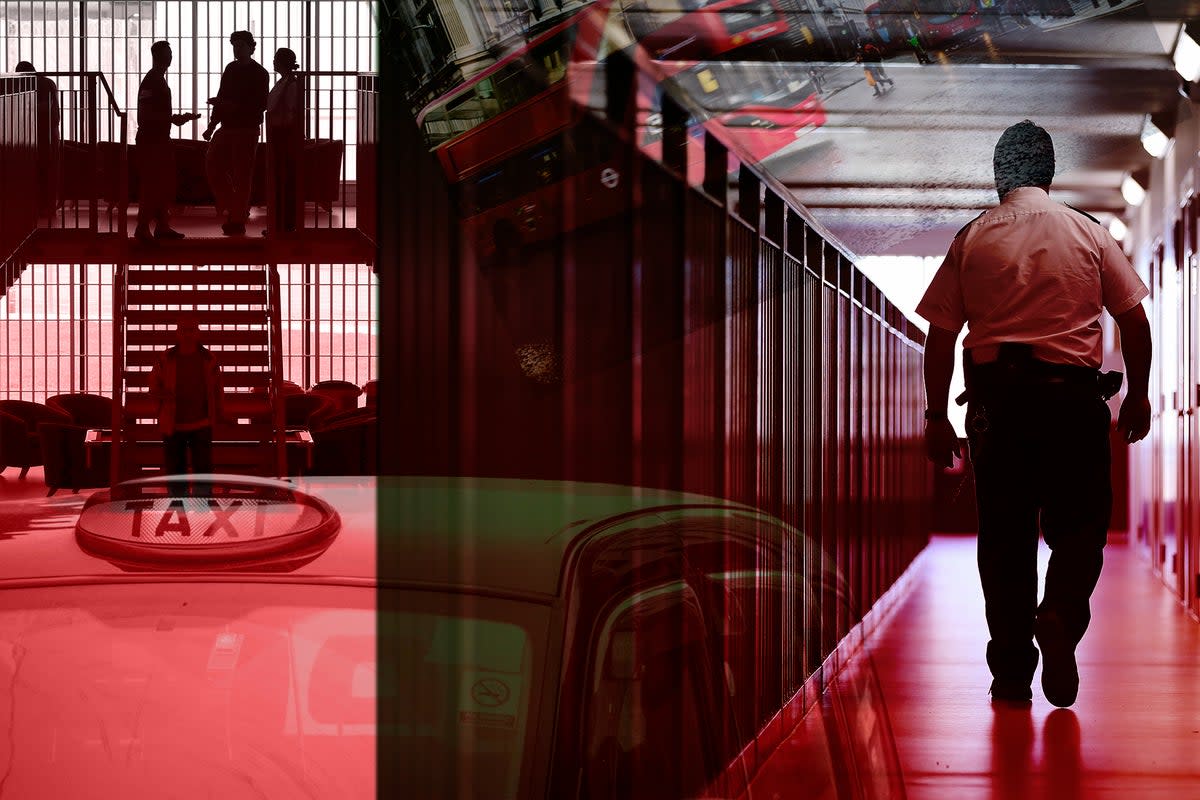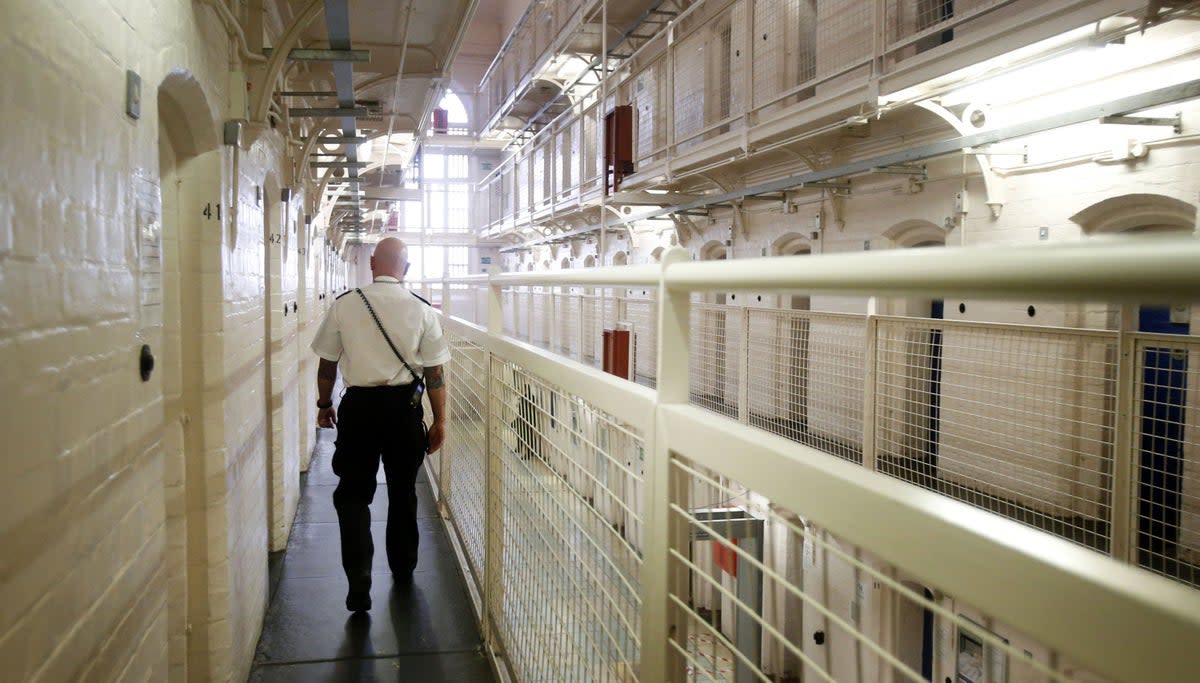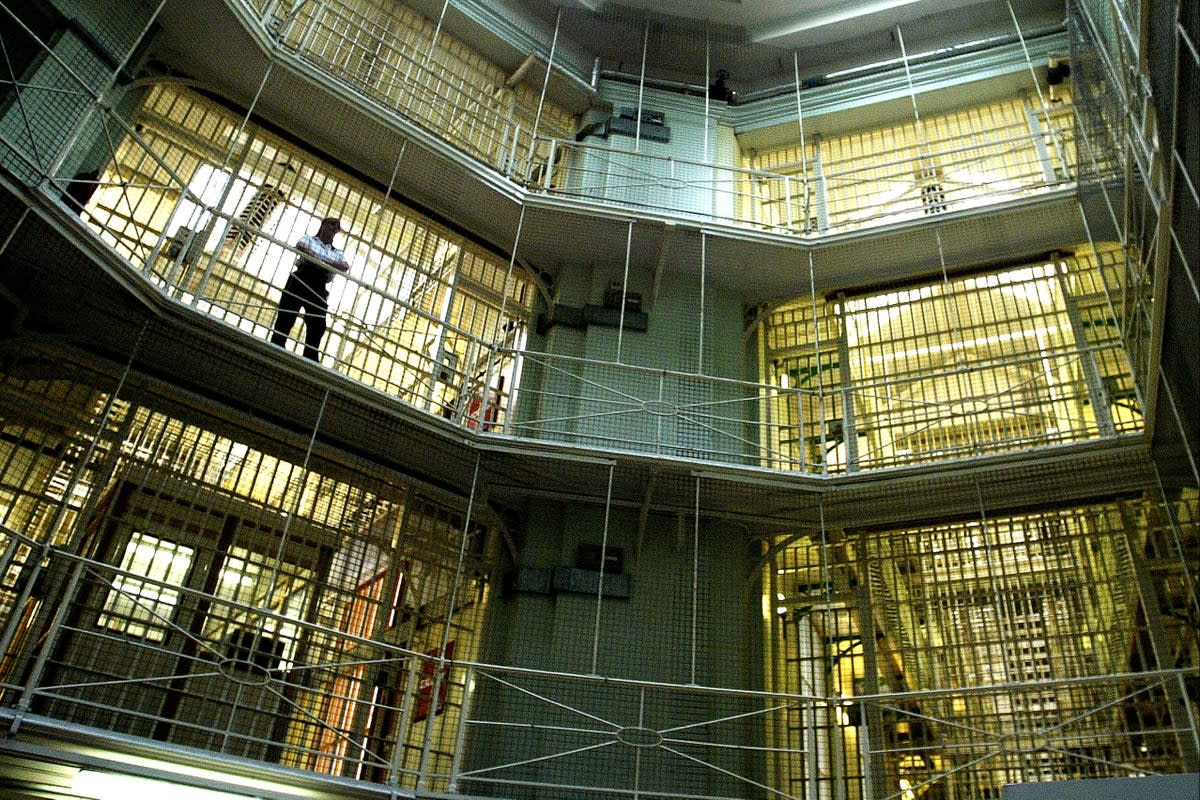Revealed: The £16.2m taxi and hotel bill to send prison staff around the country to plug gaps

The government is spending millions of pounds taxiing prison officers around the UK and putting them up in hotels in an attempt to deal with the desperate staffing crisis in jails, The Independent has learnt.
Officers are being sent hundreds of miles away from home, for just a few days or weeks at a time, to “paper over the cracks” where prisons are struggling due to chronic difficulties with hiring and retaining staff.
The government has now admitted spending £16.2m on accommodation costs, transport and extra pay in 2023, costing the taxpayer almost £50,000 per officer, more than the annual salary of a senior recruit.
The number of officers being dispatched – mostly from northern to southern England – has soared by nearly 350 per cent in the space of just four years, with HM chief inspector Charlie Taylor warning that several prisons are now “entirely dependent” on borrowed staff.
The growing reliance on temporary staff is having a destabilising impact on the prisons that are sending the officers as well as those that are receiving them, experts warn, in some cases even fuelling violence and causing inmates to be locked in their cells for all but two hours a day.

An average of more than 350 officers a month were deployed in 2023 on what is termed “detached duty”. This is a huge jump from just 79 officers a month in 2019, which cost £2.3m according to data previously released via freedom of information requests.
A total of 21 struggling prisons – one in six prisons in England and Wales – relied on detached duty last year, figures released to Labour’s shadow prisons minister, Ruth Cadbury, show, with the taxpayer spending an average of nearly £1,000 per officer each week.
“Although recently the recruitment numbers have got better, what’s actually happening is that there’s over-recruitment going on in parts of the north of England – in order, in effect, to bus people down to jails in the south of England,” HM chief inspector of prisons told The Independent.
“That’s fine if it’s for a few weeks, and it’s expedient because there’s an issue with numbers of staff. But this has now become a longer-term solution to the challenge of just not having enough officers in certain parts of the country.”
Several prisons in the South – such as Sheppey’s HMP Swaleside, Woodhill in Milton Keynes, and Long Lartin in Worcestershire – are suffering chronic staffing difficulties in the face of a more competitive local employment market, and are now entirely dependent on detached duty, inspectors have warned.
Swaleside – where 14 inmates have died in just two years – borrowed an average of 45 officers a month in 2023, new figures show. Despite receiving 44 officers a month, Woodhill still faced a 36 per cent shortfall and had the highest self-harm rate of any prison, while frustrations exacerbated by temporary staffing arrangements were reported to be fuelling violence among inmates.
Long Lartin – which houses some of the country’s highest-risk offenders and suffers among the worst rates of assaults on staff – topped the list, relying on an average of 58 borrowed staff each month.
All of the four prisons issued with emergency warnings in the past year – Bedford, Bristol, Woodhill and Cookham Wood – were among those that required temporary staff.
This increasing reliance on the decades-old practice of detached duty is merely “papering over the cracks” at an “enormous cost” to the taxpayer, said Mr Taylor, warning that “while there are many brilliant officers working on detached duty, those staff won’t remain in the prison in the longer term”.
“That’s a challenge for governors, because it means constantly training new arrivals to the particular issues within your jail, but it also means they can’t build up the kind of stable culture that we know encourages safer, more productive regimes that make people less likely to reoffend on release.”

It can also be destabilising for prisons to lose officers to detached duty. Independent monitoring boards have warned that the “over-recruitment” of officers in order to allow more to be sent on detached duty is having adverse effects in at least three Yorkshire prisons, one in Stafford, and another in Shropshire.
In HMP Wakefield, managers were overstretched by having to train new recruits to run the prison without their more experienced colleagues, who had been sent on detached duty. In HMP Wealstun, this was causing a similar shortage, leading to inmates being locked in their cells for up to 22 hours a day.
Two-thirds of the 52 jails that sent officers in November were in the North or the Midlands, analysis by The Independent found.
When there are not enough staff willing to volunteer for detached duty, some governors are now being forced to use a rotational system whereby officers are sent on compulsory two-week stretches, said Tom Wheatley, who governed Wakefield until becoming chief of the Prison Governors Association in March.
This has been the case for around eight months, Mr Wheatley believes, and can cause a “knock-on effect” whereby – as an example – staff at Wakefield have to be sent every day to cover for officers at Leeds, who have volunteered to be sent on detached duty to Kent for a longer period.
“It’s a really complicated, labour-intensive and expensive way – but it’s the only way we’ve currently got until we solve the problem,” said Mr Wheatley, who suggested introducing a system of locality pay to help to entice people to join southern prisons that are struggling to recruit and retain new officers.

While officer starting pay has increased from £23,529 to £32,851 since 2019, this has come at the expense of decent pay increases for serving officers, which is harming staff retention, said Mr Wheatley, who noted that some staff in Kent, for example, are transferring to less violent Border Force roles.
Meanwhile, detached duty costs more than the starting pay for a senior officer. As of February, officers were paid a bonus of £500 for four weeks of detached duty, rising to £2,000 for 12 weeks, in addition to being reimbursed 45p per mile in travel costs, having accommodation paid for, and being given a subsistence allowance of £25 per night.
Calling for a “complete shake-up of recruitment” and a new strategy to stem the “major problem” of officers leaving the service, the chair of the justice committee, Tory MP Bob Neill, said there is a “growing case for regional pay arrangements” because “governors need to be able to match local job-market conditions”.
Ms Cadbury, the shadow prisons minister, said the new figures illustrate “how the Conservatives’ mismanagement of our prisons is leaving taxpayers to pick up the bill”.
“The government have already spent nearly £50m to rent police cells – now it’s revealed they’re spending millions sending prison officers across the country to plug the gaps of staff shortages. 14 years of Conservative government has left our prisons in a state of crisis.”
A prison service spokesperson said: “We make no apologies for ensuring that prisons are adequately staffed across the country – including areas where recruitment has been challenging.
“Detached duty helps us run safe prisons by quickly deploying staff to where they’re needed most. Our successful recruitment campaign means we have 4,900 more officers than in 2017, and retention rates are also improving.”


